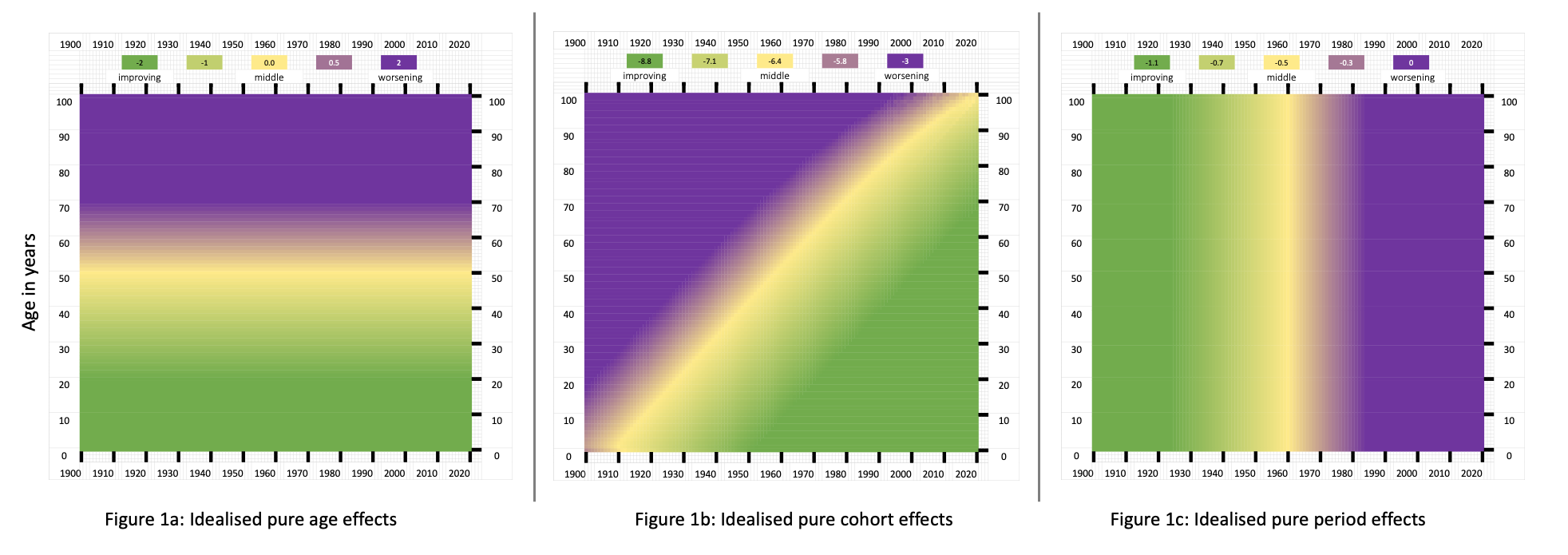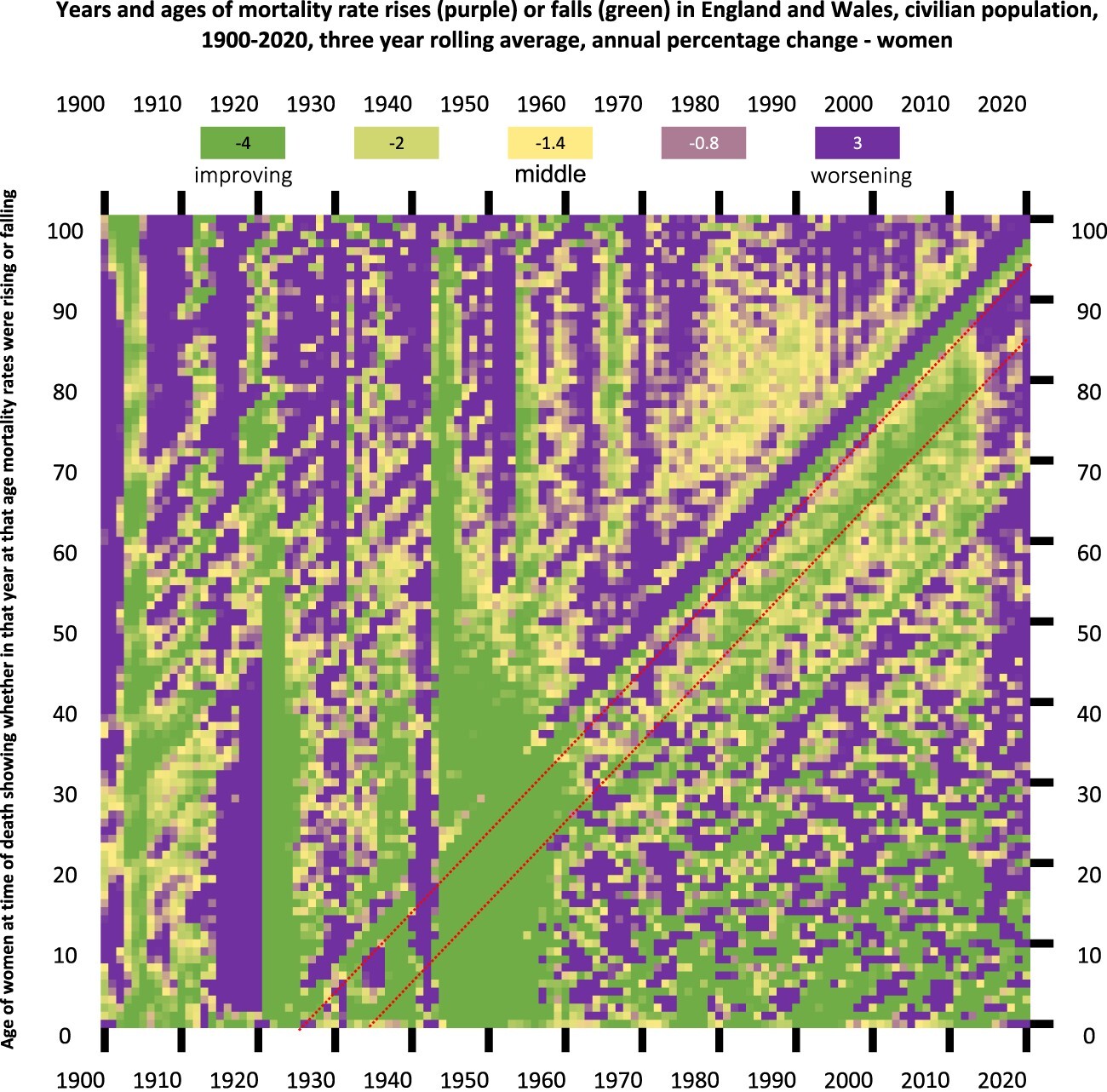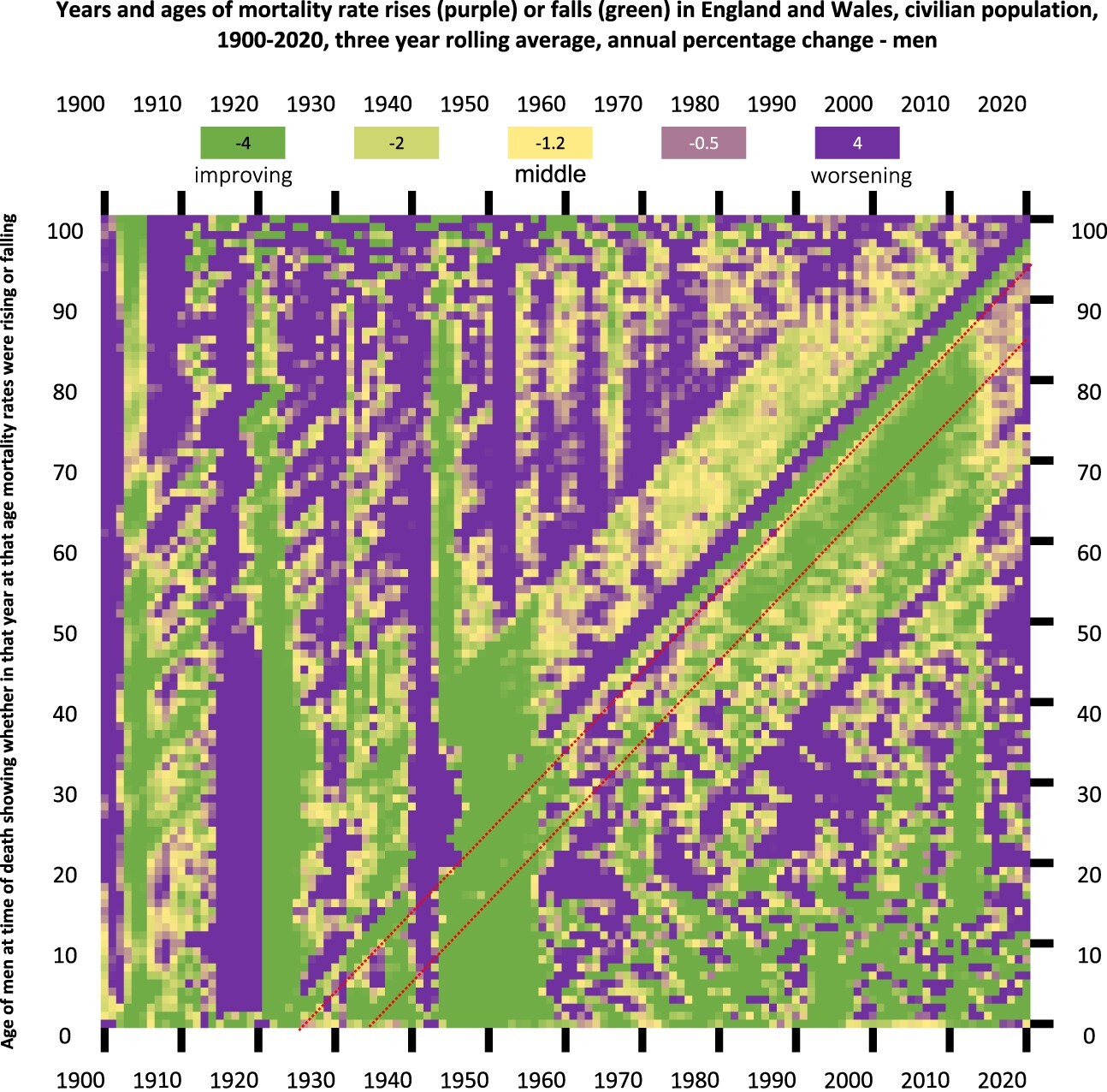The rise and fall of Britain’s Golden Cohort: how the remarkable generation of 1925–1934 had their lives cut short by austerity

A research article written by Lucinda Hiam and Danny Dorling, and published in the Review of Social Economy, online, on 29 Feb 2024.
Abstract
The British born between 1925 and 1934 experienced exceptional improvements in their annual mortality; earning them the title ‘the Golden Cohort’. They were the goldilocks generation; almost all too young to fight in WWII, but the right age to benefit from food rationing; too old to be hit by 1980s youth unemployment, and the right age to benefit from increased health and social care spending of the late 1990s and early 2000s. This group has befuddled demographers for many years, and as recently as 2014 it was predicted that their golden luck would continue. However, using the latest data from the Human Mortality Database, we show how the Golden Cohort’s luck changed in 2012 when their outstanding health record was reversed, cutting short most of their remarkable lives. This change coincides with the introduction of austerity in 2010, consistent with the evidence on the harms of austerity in Britain.
1. Introduction
There is something unusual about people born in Britain between 1925 and 1934. The men and women born in that decade were children during the time of the Great Depression and in the wake of World War I (WWI). Yet, for almost all their lives, they consistently benefited from better mortality improvements than those born before and, curiously, after them. This earned them the collective name ‘the Golden Cohort’ (Easton, 2011; Goldring et al., 2011; Murphy, 2009).
For most people, Britain in the years 1925–1934 was not a place of health and prosperity. In adulthood, the Golden Cohort did not start out at an easy time in British history. As adults, they lived in a country that was losing its empire and becoming poorer in relation to other Europeans. As children, most of them lived in poverty which had deepened in some key ways in the previous three decades (Seebohm Rowntree, 1941). They were not especially healthy as young adults, and often smoked, but something about this group resulted in their health continuing to improve from early on at rates unrivalled by those born both before them, and after them.
The Golden Cohort may partly just have been lucky. They lived, in their adulthood, through what was the most prolonged period of peace to have occurred across most of Europe for many centuries. They avoided pandemics that came far less frequently for them than such diseases had for earlier generations. They lived through some of the most equitable and progressive eras in British history. When, in the 1980s, there was mass unemployment, it mainly affected people younger than them. When health and social care spending rose greatly after 1997, it mainly benefitted them. Their good fortune had been ‘golden’. However, in this paper we argue that the Golden Cohort, who had been so lucky for so long, encountered extremely bad luck in old age. As a group, they had their lives cut short by a government-imposed policy—austerity. This so badly affected enough of this cohort to alter their collective outcomes in a way we can now see as having been startling, and which perhaps we should have better monitored at the time. Austerity measures, which were introduced in the UK in late 2010, have now been widely linked to rapidly worsening health in the British population, a trend which began long before the COVID-19 pandemic had emerged. Some of those who suffered most were the group who had been called golden.
The Golden Cohort were well into their Golden years of life—in their 70s and 80s—when the impacts of 2010 austerity began to take effect, around 2012 onwards. Here we compare the trends in mortality improvements for them with other people born a little earlier and later than those ages. We show that austerity was most damaging for those who were oldest and had by then the least power to fight it.
We begin by exploring the story of the Golden Cohort throughout the twentieth century, their more recent history from 2000 onwards, and then turn to consider the years of austerity from 2010 until the present day in depth (these austerity years are not yet over). We end with their experience of the COVID-19 pandemic and, now in the mid 2020s, how the very few that remain, but also and in summary, how their children, grandchildren and great grandchildren are today being affected by the cost-of-living crisis coupled with continued austerity in Britain. ….
For the PDF of the full article and where it was originally published online click here.
Two key figures form the paper suggesting that something changed abruptly after 2010 in the UK, the especially harmed the elderly.:

Figure 17 from the full paper (for women) – note how the colours change after 2010. Figure 18 (for men) is below

Figure 18 from the full paper (for men) – note how the colours change after 2010.